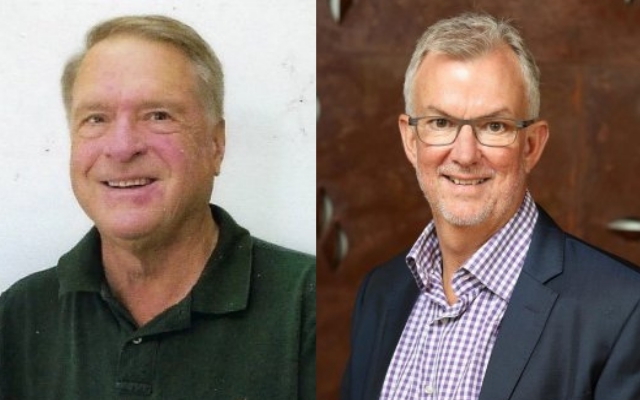
Join us for a G.S. Beckwith Gilbert '63 Lecture featuring William Bohnett ’70, Chair for the Smithsonian Environmental Research Center and Chris Greig, Theodora D. ’78 & William H. Walton III ’74 Senior Research Scientist in the Andlinger Center for Energy and the Environment.
This event is co-sponsored by the Princeton Entrepreneurship Council, High Meadows Environmental Institute, Andlinger Center for Energy and the Environment and the Keller Center.
Speaker Bios
William Bohnett ’70 is the Chair of the Smithsonian Environmental Research Center. Mr. Bohnett served from 2009-2018 as a member of the National Board of the Smithsonian Institution, the world’s largest museum and research complex, and is currently the Chair of the Advisory Board of the Smithsonian Environmental Research Center. Bill sits on the Executive Committee of the U.S. Council on Competitiveness, a non-partisan NGO working on national competitiveness issues. He is a Board member of American Forests, the nation’s oldest conservation organization, and Little Sun, Inc., a solar energy non-profit working in Africa. He has served on the Boards of The Synergos Institute, City Harvest, the Island School and New York Sun Works, and has been a member of the National Council of the Environmental Defense Fund and a Visiting Fellow of the World Resources Institute. Bill also is a member of the National Committee on U.S.-China Relations.
Mr. Bohnett is the President of Whitecap Investments, LLC, a private family investment firm, and a retired partner of the international law firm of Norton Rose Fulbright, where he maintained an extensive international corporate and securities practice.
Bill is married with three grown children and resides in Jupiter Island, Florida and Princeton Junction, New Jersey. He was a founding investor and board member of GeoCities, an internet community company which went public in 1998 and subsequently merged with Yahoo! He is a graduate of Princeton University and its School of Public and International Affairs, and the University of Pennsylvania Law School. He maintains an active international speaking schedule on innovation and sustainability.
Chris Greig is the Theodora D. ’78 & William H. Walton III ’74 Senior Research Scientist. Chris commenced a 25-year career in industry in 1986 as the co-founder of a successful process technology and contracting company that developed technologies for processing sugars, minerals, and other materials, successfully commercializing several technologies and selling the company in 1999 to a major European engineering company. From 1999 to 2011, he held senior project and executive roles in the construction and energy resources sectors, including as CEO of ZeroGen, a large-scale carbon capture and storage project.
In 2011 he joined the faculty of the University of Queensland, where he led both the UQ Energy Initiative and the Dow Centre for Sustainable Engineering Innovation. He also served as Chairman of the Energy Policy Institute of Australia, Deputy Chairman of Gladstone Ports Corporation, and Non-Executive Director of two ASX listed engineering companies. He was a Gerhard R. Andlinger Visiting Fellow in Energy and Environment at the Andlinger Center from 2018 to 2020, and joined Princeton University as a Senior Research Scientist in August 2020. He also holds an Adjunct Professorship at UQ. Chris has a PhD in chemical engineering from UQ and is a Fellow of the Australian Academy of Technological Sciences and Engineering. His research interests lie in energy transitions, economics and policy, energy for development, mega-project implementation, and CO2 capture and storage systems. This semester, Greig is teaching ENE 372: Rapid Switch: The Energy Transition Challenge to a Low-carbon Future. The course springs from the work of the Rapid Switch project, which Greig first conceived and initiated at UQ and is continuing to play a lead role in from Princeton. Capitalizing on the Rapid Switch energy transitions framework, Chris co-led Princeton’s Net-Zero America report, providing granular detail on five potential pathways to US net-zero carbon emissions by 2050.
Who can attend?
Open to the public and the campus community.
Contributions to and/or sponsorship of any event does not constitute departmental or institutional endorsement of the specific program, speakers or views presented.